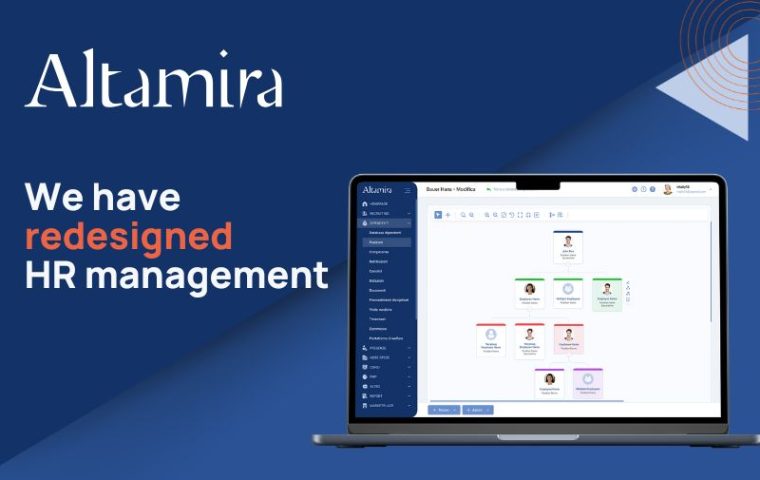Thanks to the spread of smart working, more and more companies are starting HR digitization projects.
Given the relevance of HR processes to the success of companies, these projects must be carefully prepared and organized in several steps, starting with the identification of needs and the definition of objectives and priorities (we discuss this in more detail in our article Digital Transformation and Human Resources: 7 key steps).
For the project to be successful, it is essential to carry out the software selection phase successfully, during which you will have to review HR platforms from different manufacturers to see to what extent their functionality corresponds to the identified requirements. It is also important to consider the quality of the graphical interface, taking into account not only aesthetics but also—and most importantly—usability.
However, to make a decision that is truly well thought out, you should also investigate other aspects of the service on offer.
Here are 10 questions to ask HRM platform providers.
1. Can you help me comply with the GDPR?
With the arrival of the GDPR, companies have redoubled their efforts to carry out the processing of employee and candidate personal data in the correct way.
In order to achieve this difficult objective, the HRM platform, if equipped with dedicated tools, can be your strongest ally. Especially in recruiting, where it is impossible to correctly process the data of thousands of candidates without a digital tool that helps you collect and store consents, respect data retention times, guarantee fundamental rights to the users, such as deletion and limitation of data processing, etc.
You should not only assess the GDPR tools made available by the vendor, but also make sure its servers are located in Europe and that the contract documents are adequate. In particular, you should check the data processor agreement they have to ask you to sign.
2. Is it secure?
HR software vendors will be responsible for handling a lot of sensitive data on behalf of your company. So it’s a good idea to gather information about the security measures taken by them and the IaaS (Infrastructure as a Service) platform that hosts the service.
You should ensure that disaster recovery and backup procedures are in place to prevent data loss and ensure continuity of service, and get informed about the guaranteed service level (SLA) and actual service level provided.
Equally important is the reliability of the development and support staff, who should follow strict security procedures, especially when it comes to password management.
3. Is the Customer Support adequate?
Some companies discover too late that customer support is among the most important considerations when you’re choosing a technology provider.
The constant delays when responding, the inability to get in touch with an operator or the presence of bugs that remain unresolved for months can create significant inconveniences and hinder delicate processes such as those connected to payroll.
The presence of a well-qualified and easily reachable technical support service is one of the elements that are leading companies to prefer a local provider of small and medium size instead of a multinational one, which works through resellers whose standards of support are not always up to the mark.
Support-related information—such as location, days and hours of service, how to contact them, the guaranteed response time depending on the type of problem, the languages supported, etc.—is typically present in the contract documents you receive from the provider.
4. Are regular updates planned?
One of the advantages of cloud-based HR software over those installed on enterprise servers (on-premise) is that it is much easier to update. In fact, the vendor is the one who manages this process in all of its aspects for all customers.
This is not to say that all cloud software is being regularly updated. Inquire with your potential vendors to find out if there are any scheduled releases that would add new features, improve the user interface, fix bugs, etc.
Business needs and processes are constantly changing, so it’s important to know that the digital platform on which you’ve organized them will also continue to evolve, protecting the investment you’ve made.
In the case of Altamira HRM, for example, we release about 45 upgrade packages per year.
5. Can I freely import and export data?
The data you enter into HR software will remain your property. Therefore, importing and exporting it should be quick and easy, and there should be no limitations whatsoever.
Importing data in bulk will allow you to quickly populate the new database and leverage existing information, while exporting will come in handy for analyzing data with other tools, preparing reports and presentations, or, if necessary, migrating to another system.
6. Is it an open system?
It is very often the case companies decide to embark on the HR digital transformation journey by starting with simple projects and then making them more advanced over time.
At that point, they will need to integrate their HRM platform with other business software, such as payroll, CRM, ERP, etc.
It’s a good idea to find out about the integration capabilities of the HR software you’re considering, and to prefer open systems that can easily interface with other applications.
While some time ago it used to be enough to be able to exchange files in certain formats, for example XML, nowadays one can no longer do without API (application programming interface).
Also, ask whether integration services are offered by the provider, in what timeframe and at what cost.
7. Can I customize it myself?
Once you’ve chosen the new HR software for your company, the vendor’s consultants will help you set it up right.
As time goes on, new needs will inevitably arise, for which you’ll need to add fields, change the configuration of a workflow or change the appearance of a dashboard.
Therefore, the ability to make changes and customizations independently is an important feature in order to maintain a high level of efficiency and satisfaction over the years.
8. How is the training delivered?
As intuitive as HR software may seem, it’s always best to schedule training to make sure you’re getting the most out of the tool.
Find out how this will be delivered—for example, via live in-person attendance, via video conferencing or via video on demand—what topics will be covered, how much it will cost, how long it will take, and how many people will be trained.
More often than not, vendor-provided training is focused on the HR department, administration and management, while training the rest of the employees remains the responsibility of the client company, which can take advantage of the training materials made available.
9. Does the system come with comprehensive manuals?
If you’re considering purchasing self-service HR software that all employees can access, you’ll need to provide them with enough information to perform the most important tasks, such as clocking in, requesting leave, viewing the latest paycheck stub, etc.
So before you make your final choice, remember to have the vendor show you the training materials that will be available to system admins, HR managers and employees.
As the bare minimum, the vendor must make PDF guides available.
It is much more useful to have a digital help center built into the platform, with the ability to search for the answer to your questions directly from the application.
The availability of training videos, which are often more intuitive than text-based guides, is an added bonus.
Also, you should inquire about the ability to request customized training materials for your own account, typically for a fee.
10. Will it cover my future needs as well?
As we mentioned above, the HR digitization journey often proceeds in stages. You might start with search and selection processes or attendance monitoring, and then move on to other areas such as training or staff evaluation.
The advantage of choosing a multi-product provider, like Altamira, is that you’ll be able to access the modules you want in the future without having to undertake a new and laborious software selection process and without having to set up costly integrations between different platforms.
So, check to see which are the areas in which each potential supplier would be able to support you, both now and in the future.
Copyright: ©Vasily Merkushev/Adobe Stock














